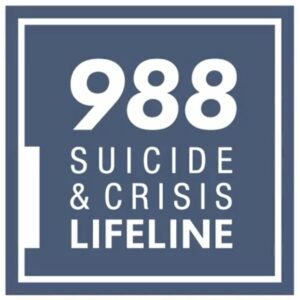Because each individual is unique, there is no single reason as to why an individual dies by suicide. However, there are several factors that may contribute to a person having suicidal thoughts.

719-545-2746
We are available 24/7/365
Risk Factors And Warning Signs
If a person TALKS about:
- Being a burden to others
- Feeling trapped
- Experiencing unbearable pain
- Having no reason to live
- Killing themselves
Specific BEHAVIORS that may signal a suicidal risk:
- Increased use of alcohol or drugs
- Looking for a way to kill themselves, such as searching online for materials or means
- Acting recklessly
- Withdrawing from activities
- Isolating from family and friends
- Sleeping too much or too little
- Visiting or calling people to say goodbye
- Giving away prized possessions
- Aggression
QPR training is available through Health Solutions. Click here for more information.
MOODS often displayed by people who are considering suicide include:
- Depression Loss of interest
- Rage
- Irritability
- Humiliation
- Anxiety
- Talking about wanting to die or to kill oneself
- Looking for a way to kill oneself
- Talking about feeling hopeless or having no reason to live
- Talking about feeling trapped or in unbearable pain
- Talking about being a burden to others
- Increasing the use of alcohol or drugs
- Acting anxious or agitated; behaving recklessly
- Sleeping too little or too much
- Withdrawing or feeling isolated
- Showing signs or talking about seeking revenge
- Displaying extreme mood swings
REMEMBER: Any one of these signals alone doesn’t necessarily indicate a person is suicidal. However, several signals may be cause for concern. Signals are especially important if the person has attempted suicide in the past. Listen. Be a friend. Get professional help. Your actions may save a life.

What To Do:
- Take the risk factors and signals seriously. If you think someone is considering suicide, ASK HIM OR HER “Are you suicidal?” or “Do you want to kill yourself?” If the answer is “yes,” GET HELP.
- Show interest in the person and be supportive of him or her.
- Offer hope that there are alternatives to suicide.
- Take action. Remove methods the person might use to kill him or herself.
- Seek help from his or her family, friend, physician, clergy, etc.
IMMEDIATELY contact a person or one of the organizations below that specialize in crisis intervention or suicide prevention for help.
Resources
There are many resources available to you in this community If you or someone you know is thinking about suicide.

QPR Trainings
If someone you know was considering suicide, would you recognize the warning signs and know how to help? Sign up for a free virtual QPR training and learn ways to Question, Persuade, and Refer someone who is at risk for suicide.
Click here to register!

Health Solutions 24/7 Crisis Line
719-545-2746
Crisis Living Room, 1310 Chinook Lane, Pueblo, CO 81001





